Chapter 13 bankruptcy is sometimes referred to as a “wage earner’s plan” or a “reorganization.” A chapter 13 bankruptcy provides an opportunity to reorganize finances without having to liquidate or sell any assets. As discussed below, Chapter 13 is often a good option for protecting valuable assets such as a home or car from foreclosure or repossession.
How does a chapter 13 bankruptcy work?
In chapter 13 you enter into a court approved repayment plan that lasts either 36 or 60 months. Plan payments under chapter 13 are based on what you can afford and funded with your income. At the end of a successfully completed plan your remaining unsecured debt, such as credit card bills and medical debt, are wiped out.
Save your home or car with a Chapter 13 bankruptcy
Chapter 13 is often a good option for individuals who want to keep all of their assets. This is an option that is often helpful to those who are behind on their mortgage or car note and are not able to catch up payments. Chapter 13 can stop a foreclosure and provide an opportunity to catch up past due mortgage payments as part of the plan. Chapter 13 is often a good option for people who have a significant amount of equity in their homes. Chapter 13 may also be a good option for those whose car is about to be or has already been repossessed. If you act quickly, you can stop a repossession sale and catch up on past due payments as part of a chapter 13 plan so that you can keep the car.
Chapter 13 can be used to discharge or get rid of certain types of debts that are not dischargeable in a chapter 7 bankruptcy
A big difference between a Chapter 7 and a Chapter 13 is that Chapter 13 allows more types of debts to be wiped out or discharged than a Chapter 7 does. What kinds of debts are we talking about? Some of the more commonly applicable ones are:
Certain debts related to divorce
Non-support debts are debts you owe to your former spouse from a divorce or separation agreement (other than domestic support obligations). Non-support debts are more commonly known as property settlement debts. These debts are dischargable in Chapter 13, but not in a 7. To learn more about divorce and bankruptcy click here.
Second and greater mortgages on your home
On a primary residence that has a first and second mortgage and the amount owed on the first mortgage is more than the value of the property, Chapter 13 can be used to remove, or “strip,” second and third mortgages from your home. The United States Supreme Court has recently confirmed that this is not an option available in a chapter 7 bankruptcy.
Debts incurred for the purpose of paying non-dischargeable Federal, State or Local taxes
If you took out a loan (including paying by credit card) to pay taxes that are otherwise not dischargeable in bankruptcy, the money you borrowed to pay the taxes will not be wiped out or discharged in a Chapter 7 bankruptcy. In Chapter 13, however, you can get rid of this kind of debt.
Chapter 13 can offer protection to co-signers on loans that chapter 7 cannot
If you have a family member or friend who co-signed on a consumer debt you owe and you want to protect that person from collection actions. In chapter 7, co-signers are not protected and creditors can immediately go after them for the full amount of the debt. In most instances, a co-debtor or co-signer of a consumer loan is protected through the duration of a chapter 13 plan while you make payments on that debt through the plan.
Chapter 13 offers an option for those who want to pay their debts as fully as possible but need some breathing room to do so
You feel obligated to pay your debts and wish to do so but are not able to pay without some immediate relief from your creditors and restructuring of the debts.
These and more benefits of Chapter 13 bankruptcy protection may be available in your specific situation. To schedule an initial free and confidential consultation to discuss your particular situation call 601-853-9966.
